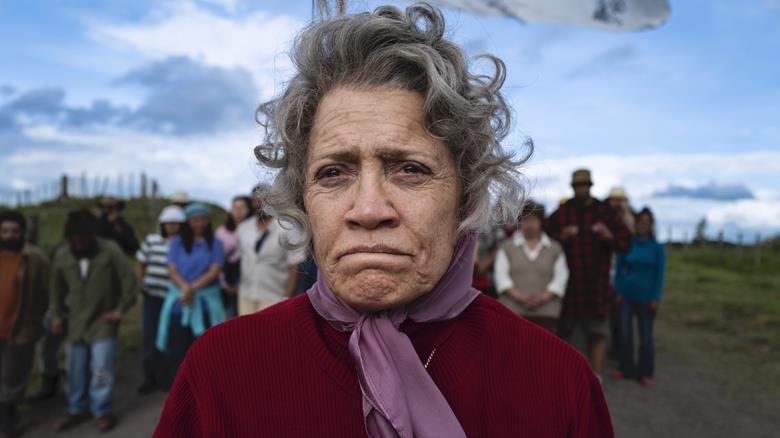
Whina – REVIEW

From New Zealand comes this inspirational biopic which centres on Dame Whina Cooper, a respected Kuia (Māori elder) who was acclaimed for her activism in fighting for Māori land rights, women’s rights, and education rights until her death in 1994.
The film details the important periods in her life from her birth in 1895 that led to her being the “chosen one” to lead the Māori population to victory. Nothing stopped her from leading the crowds to vent their grievances to the government, a government who had given up on the indigenous population.
Whina believed that strength came from being unified so she also fought for unity between the Māori and the white New Zealanders, exclaiming; “Let’s join together and not fall apart! The world is changing, it’s a new era and we must be ready!”

The film captures the endearing passion and unstoppable determination Whina had for her cause – through the course of two loving marriages that ended in tragedy she still found the time and motivation to tell the crowds they should never forget their heritage and should also peacefully march for equality. Through the respect she earned the marches gained numbers and momentum throughout the country.
This is an ambitious and triumphant movie, filmed in the picturesque landscapes of New Zealand. The passion the entire cast felt for this project is conveyed in each scene and also through the remarkable and emotionally charged performances delivered by Miriama McDowell and Rena Owen, who portray younger and older Whina Cooper respectively.
The ancestral and cultural practises of the Maori feature strongly throughout, educational viewing for audiences who are not familiar with the heritage of this race.
Whina successfully utilises the non-linear style of storytelling, commencing in 1975 and through all the significant timelines in the past that led to her rise in status.
This is powerful and relatable viewing as most countries have similar stories to share about the unjust practices utilised by governments to suppress minority populations. If audiences exit the cinema with a sympathetic view on this subject and perhaps slight anger, then the film has served its purpose.
★★★★
Now screening In Cinemas









